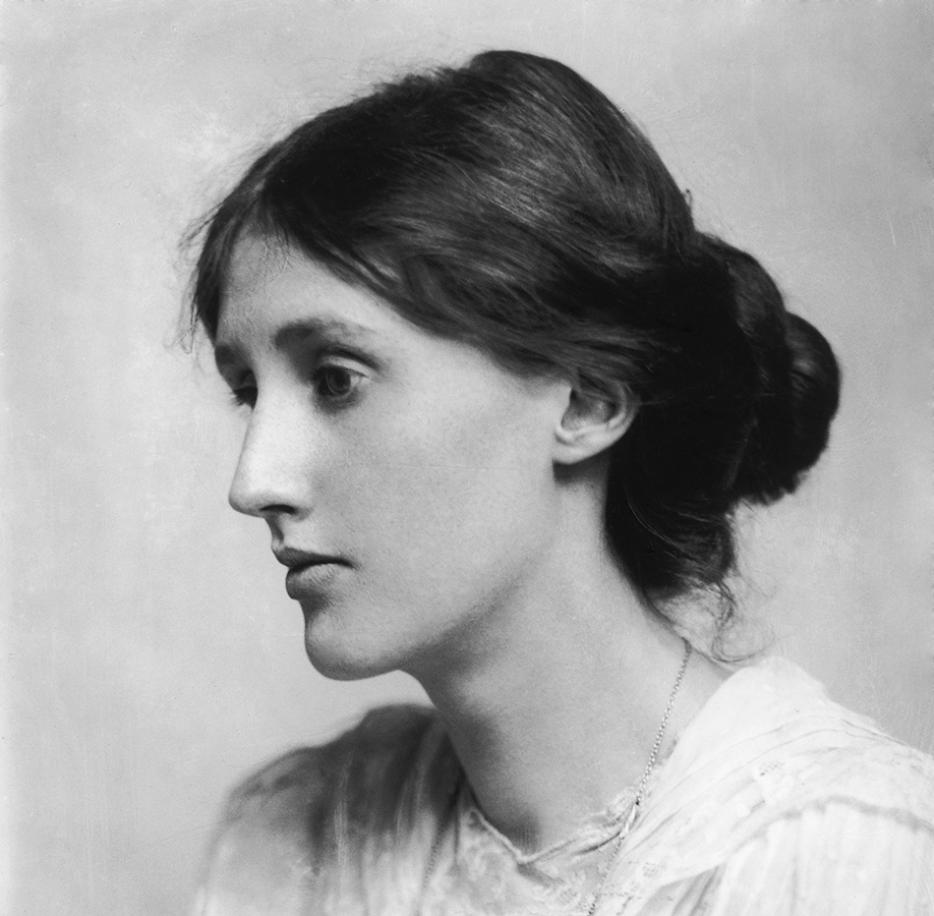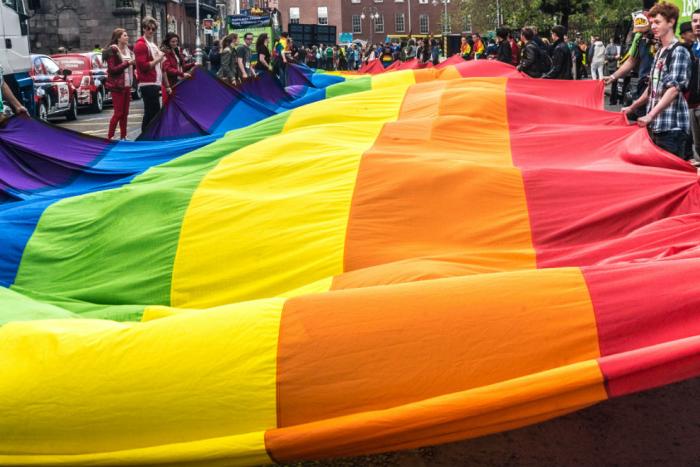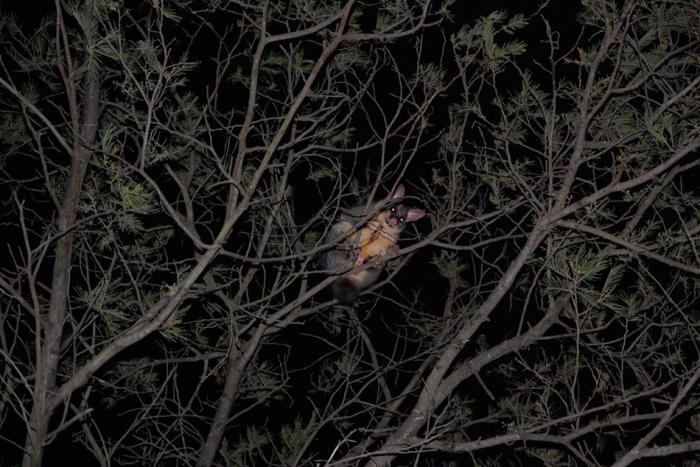The Close Read is a careful look at a component part of a thing we love—a single song, a chapter, a scene, an ingredient—often with some helpful commentary from the creators themselves.
There have been days in my life so exquisite I thought I could die for them. I recall a spring afternoon during my freshman year of college: the air expanded like a soft, cool exhale as I lolled on the grass with my girlfriends. Everything was possible, but nothing needed attention. So we basked in that suspended potential, fresh like the air, and I marveled at how easy it could be to love the world and all the people in it.
I was rinsed in empathic bliss, my body tethered with loose stitches to everyone I could recall. On a spring day like that, the connective tissue of empathy nearly revealed its slim threads in the shining sun.
I feel this way so rarely that in the expansive lulls I have made a practice of seeking evidence that these raptures are not mere fantasy. I write about it now in a slipshod effort to confirm their truth. In my junior year of college I took solace in what seemed to me another writer’s account of a similar feeling of exhilarating fullness: the opening pages of Virginia Woolf’s Mrs. Dalloway.
*
“What a morning—fresh as if issued to children on a beach,” Clarissa Dalloway thinks to herself upon greeting the day. The first assertive line of the novel—“Mrs. Dalloway said she would buy the flowers herself”—submerges us into an early 20th century London morning, one so delicious that the protagonist wades blithely into it. “What a lark! What a plunge!” the descent onto the Westminster street seems to Clarissa, and so it is for character and readers alike. But Woolf’s gift to us is also her demand: that we acknowledge our terrestrial companions as a crush of bodies encasing frenzied, fragmented minds—every one meandering through a world uniquely conjured from perception and sensibility. To know the world is to be overwhelmed by its infinite multiplicities. And we do not merely live amidst this chaos and disorder; we, together, comprise it.
It’s thus appropriate that Mrs. Dalloway is not partitioned into chapters; after all, organizing a narrative according to numerical progression implies a steady forward march without pause, lapse, or retraced footsteps. It suggests tidiness and compartmentalization where none could possibly exist. And yet we are always much more than the body we occupy. The ghosts of our past selves keep company with us, sometimes silently within a crease of the brain, other times with insistent vitality.
Woolf presents us with both the beauty and danger of human porousness.
At the start of the novel Clarissa lives her present simultaneously with her girlhood, gliding between temporal spaces in the half-breath between words on the page. “How fresh, how calm, stiller than this of course, the air was in the early morning,” Woolf writes, “like the flap of a wave; the kiss of a wave; chill and sharp and yet (for a girl of eighteen as she then was) solemn.” We are too porous, too tangled up in our surroundings to be immune to their associations. The scent of one morning can recall another long past—can summon a prior self from slumber. And as Clarissa knows, we must reckon with our past iterations whenever they overtake us; to deny the potency of memory is incompatible with life.
Indeed, coming to terms with who we once were, without bitterly regretting our foibles and missteps, is itself a form of empathy. When I first read Mrs. Dalloway I marveled at the flexibility with which Clarissa creates space for her past selves, acknowledging the accompanying pain—her old, scorned lover Peter Walsh looms large—without disavowal or efforts to suppress it. Her memories arrive and recede like a gentle tide; they are not so much events as established houseguests. I have struggled to coexist peaceably with my past iterations whenever they rear their heads. However, my attempts at self-betterment have always been emblazoned with the stigmata of shame. I cannot refashion myself without condemning who I once was, and fretfully banishing all memory of her— with the dreaded knowledge that she will inevitably resurface. “Live life in fragments no longer,” E.M. Forster writes in Howards End, and yet that is impossible. Woolf reminds us—she reminds me—that I can never slough off the remnants of another self. I am a conglomerate, paper scrawled over again and again in a spectrum of inks—if I endlessly reencounter myself it is because all that I am effloresces from what I was, and what I perhaps will be again. Better that I bear witness to the past mes in hopes that I will one day accept them, understand why they were, and how they swelled and cohere into the Me of Now.
*
And yet, the pull of Mrs. Dalloway stems, for me, largely from its tender rendering of a social web. We meet characters in the first pages, such as Scrope Purvis and Lady Bexborough, who will not return—though upon a first reading one cannot know that. But that is the point. Though we as readers may know Clarissa best, though we may dwell in her perspective, invest ourselves in her private concerns, her humanity is no more vigorous than those characters lingering at the margins. If we regard ourselves as the protagonists of our own lives, then we must, to live empathically, remember that we are not singular in our possession of an inner life. We are all of us contradictory composites, uneasily reconciling relics of our previous selves with our current one. We each perform wholeness and consistency though just beneath the skin we are roiling, reeling surges of feeling and impulse and half-thoughts.
The finality of annihilation hovers at the edge of even the most glorious day.
Clarissa understands this unalienable condition of being human—“she would not say of any one in the world now that they were this or were that.” How could one view others in such a totalizing manner when “she felt very young; at the same time unspeakably aged. She sliced like a knife through everything; at the same time was outside, looking on.” Clarissa is not an exceptionally altruistic woman; she’s prone to trivialities and snobbishness. But she possesses a delicate awareness of herself as jumbled and fragmented—awareness that in turn yields compassion for others and bestows her with almost supernatural perception.
“Knowing people almost by instinct,” as Clarissa claims, she confidently discerns a broad commonality among her fellow Britons: “In people’s eyes, in the swing, tramp, and trudge; in the bellow and the uproar; the carriages, motor cars, omnibuses, vans, sandwich men shuffling and swinging; brass bands; barrel organs; in the triumph and the jingle and the strange high singing of some aeroplane overhead was what she loved; life; London; this moment in June.” We are all of us tangled up in each other, and through Clarissa, Woolf presents us with both the beauty and danger of human porousness. If Clarissa sees herself reflected in London life it is because the world depends on itself to exist. We are constituted by one another. Indeed, the same intuition that guides Clarissa’s response to the death of Septimus Smith enables her to take the city’s pulse. And yet it is presumptuous of Clarissa to assume sameness with such certainty, to regard the fever of the city as universally beloved. Mistaking blindness for empathy is simple when joy is the natural accompaniment to one’s privileges. Clarissa can bask in “the bellow and the uproar” of the city because she can also retreat from it, and shut the door behind her. Novelty has a tendency to make us philosophers—perhaps this is the case for Clarissa, too. After all, it is not everyday that she buys the flowers herself.
*
“She had a perpetual sense as she watched the taxi cabs, of being out, out, far out to sea and alone; she always had the feeling that it was very, very dangerous to live even one day.” In the midst of the hubbub, and on the heels of a war that brought unfathomable calamity, the finality of annihilation hovers at the edge of even the most glorious day. Clarissa—though she walks alone to buy her flowers, though she treasures autonomy and the sanctity of her inner life—refuses to relinquish her place within the human fold. No, she will seek connection where it can be found: in the boom of Big Ben that centers everyone, if fleetingly, in the present as “the leaden circles [dissolve] into air”; in the party she will host later that night.
The dread of annihilation lurks beneath our joy. Submerged in my own exuberance those years ago was a live wire crackling with the terror of isolation; it sparks within me still, urging me to connect, to love, to leave my imprint wherever there may be space. Clarissa, too, wonders “did it matter that she must inevitably cease completely; all this must go on without her; did she resent it; or did it not become consoling to believe death ended absolutely? but that somehow in the streets of London, on the ebb and flow of things, here, there, she survived.” Settling into the comfortable certainty that she will endure, “laid out like a mist between the people she knew best” and a “part of people she had never met” Clarissa determines that interconnectivity safeguards against oblivion and promises us an earthly afterlife. Is this the dark underbelly of empathy—the propulsion to seek common ground so that we may colonize it? Perhaps I open my arms widest when the doubt of another spring day stings most.






